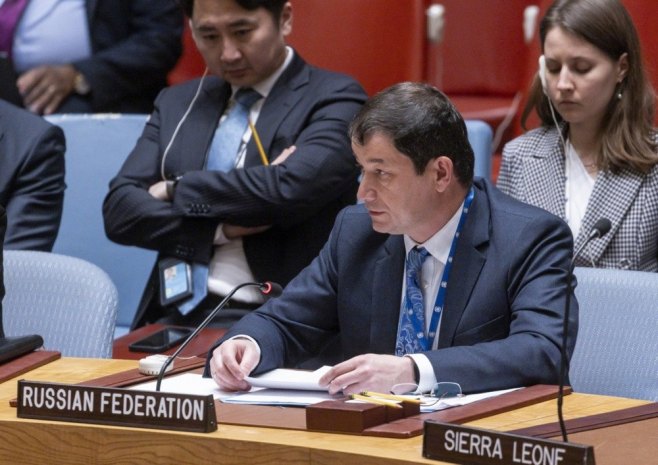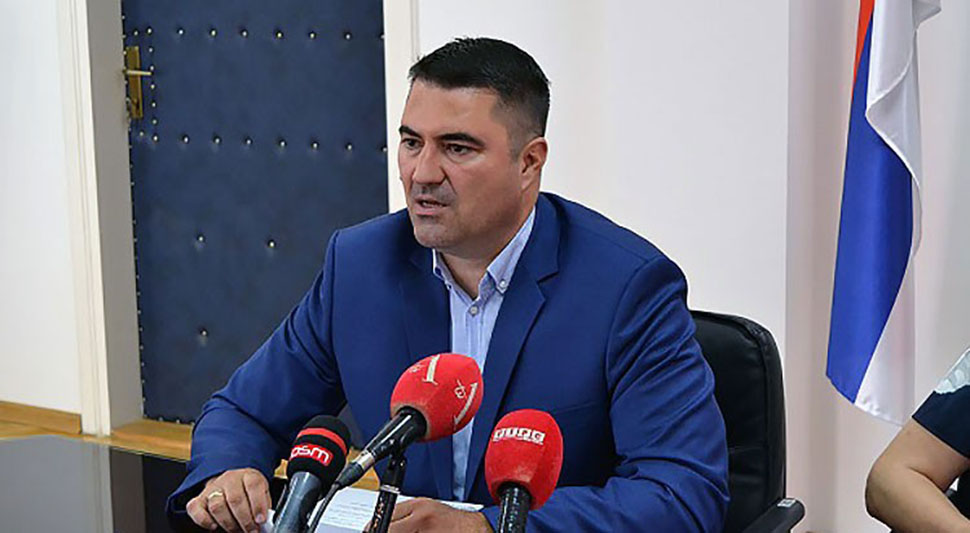Republika Srpska bears no historical, political, institutional, or moral obligation to become a dumping ground for the failed policies of other countries, including plans to establish offshore reception centers for undesirable migrants in the Western Balkans.
This is emphasized in a document signed by the President of Republika Srpska, Milorad Dodik, submitted to the National Assembly, calling on lawmakers to adopt a declaration rejecting the plans of the United Kingdom and certain EU member states to build migrant reception camps on the territory of Bosnia and Herzegovina.
As explained in the document, this is a legitimate response by the authorities of Republika Srpska to a political project whose ultimate aim is to cause demographic, security, and cultural destabilization in areas inhabited by the Serb people.
“Republika Srpska, like most countries in the region, is facing a demographic challenge. Instead of supporting birth rates and encouraging young people to stay, there is an attempt to impose the settlement of individuals who share neither language, culture, faith, nor historical ties to this region. This is a population replacement concept, and it should be called by its true name. Countries that have accepted similar arrangements have experienced a sharp rise in social fragmentation, tensions, and long-term erosion of social cohesion. For this reason, the program must be rejected as anti-demographic and anti-civilizational,” the document states, adding that Republika Srpska must not become a testing ground or a holding zone for individuals clearly deemed undesirable and unacceptable in other European countries.
In order to implement this plan, the United Kingdom and certain EU member states are already employing pressure tactics, secret negotiations, and indirect diplomatic missions. Instances of British diplomats communicating with selected officials in Bosnia and Herzegovina—without any transparency—demonstrate an attempt to bypass Republika Srpska and forcefully push it into programs it openly opposes. According to the authors of the declaration, this is not only diplomatically inappropriate but also a dangerous precedent in regional relations that may further undermine trust and political stability in Bosnia and Herzegovina.
“Behind the appearance of good intentions lie schemes for achieving geopolitical goals that have nothing to do with humanity or international law,” the document warns.
According to available information, the UK government, the European Union, and certain member states are actively considering the establishment of so-called “return centers” in third countries—including in the Western Balkans—as a means of reducing the number of illegal migrants and asylum seekers on their territory. These centers would accommodate individuals whose asylum claims have been rejected.
Current UK authorities have already initiated talks with several Western Balkan countries, and British media outlets have reported that such logistical centers, camps, or reception facilities could be organized in Bosnia and Herzegovina, primarily for thousands of individuals from the Middle East, sub-Saharan Africa, and other high-risk regions. Rural and economically unstable areas are being considered as the most likely sites for these facilities—with a particular focus on the territory of Republika Srpska—with an estimated 50,000 migrants to be relocated.
The acceptance of these unwanted migrants, the document warns, would impose an enormous burden—ranging from increased crime rates and social tensions to health and sanitary risks. The plan envisions their stay as “until further notice,” which in practice often means permanently—posing serious security threats, as shown by the experience of certain Western countries, where deported migrants have frequently become hotspots of radicalization and crime. Another alarming factor is that these migrants do not come alone—they bring with them networks, ideologies, and behavior patterns that may severely disrupt the core values of the communities they settle in. A particularly sensitive issue is that many of these migrants originate from countries known for terrorism and extremist activity, and a significant number have fought on behalf of ISIS and other terrorist groups.
The document also notes that in the Federation of Bosnia and Herzegovina, well-organized criminal groups—mostly composed of migrants of Afghan origin—are already operating, especially in Sarajevo and the Una-Sana Canton, where numerous crimes such as murder, kidnapping, and illegal possession of firearms have been documented. Recently, kidnappings have become increasingly frequent, usually carried out by members of the migrant population stationed in Bihać and Velika Kladuša. These are typically citizens of Morocco or Afghanistan, who, acting on prior information, target migrants from wealthier families, kidnap them, hide them in forested and inaccessible areas near the Croatian border, and then contact their families to demand ransom, typically amounting to several thousand euros.
Because of all the above, President Milorad Dodik has called for the adoption of the declaration by the National Assembly of Republika Srpska, rejecting any and all plans involving the establishment of such or similar centers for the accommodation of unwanted migrants. The document concludes that Republika Srpska remains committed to European values, including respect for sovereignty, transparency in decision-making, and protection from unacceptable global policy experiments, but that its future will not be built on the improvisations of others’ strategies.
Collapse of trust
Research conducted by the University of Oxford and other reputable institutions shows a dramatic decline in public trust in the UK’s migration policy. Most respondents believe that the number of migrants should be reduced. In that context, the UK government is attempting to achieve political peace domestically by “relocating” migrants—at the cost of destabilizing the region. Reports indicate that from 2016 to 2024, the number of people demanding a complete halt to immigration has significantly increased, meaning that even within the United Kingdom, the idea of sending unwanted migrants to other countries is not viewed as legitimate.
Not a dumping ground
Republika Srpska’s stance is that it must not become a dumping ground for migrants who pose a serious security threat. This was highlighted by Radovan Kovačević, a delegate in the House of Peoples of the BiH Parliament, who reminded that the UK has openly declared its intent to find space for relocating a large number of migrants from Iran and Somalia. He also pointed out that several EU countries are seeking to offload migrants who are considered a threat to their safety and citizens, and are considering the Balkans as an ideal location for that purpose—something Republika Srpska finds absolutely unacceptable.
Source: Glas Srpske








